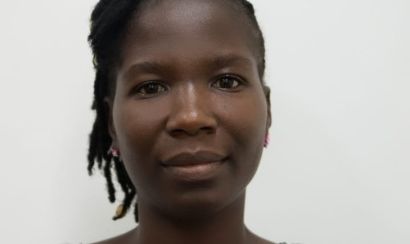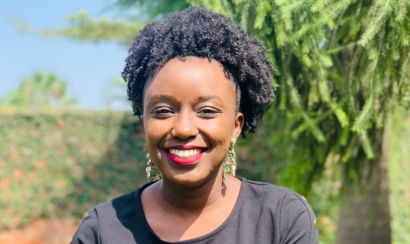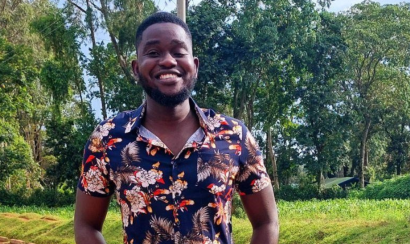In My Own Words: Concilia Ogolla
Changing social behavior to drive rural development
Ever wondered how farmers embrace and start practicing new and more effective farming techniques? Concilia, our Social Behaviour Change Research Lead, plays a part in that. She uses her skills to bridge the gap between our research findings and farmers’ everyday reality. In this piece, Concilia dives into her career journey, from her initial interest in One Acre Fund to the lessons she learns from smallholder farmers and how that influences her work.

What initially sparked your interest to join One Acre Fund, and how has your journey been since then?
I remember applying to One Acre Fund three times before landing the role. What initially caught my attention was the impressive scope of work and the solid structures the organization has in place. For someone who does not know how to settle in a world full of opportunities, it is important to find a place that promises growth and provides a clear path forward. The role I saw perfectly matched my background in behavioral science, which made it all the more compelling. It's been a fascinating journey, continuously aligning with my aspirations and pushing my professional boundaries in exciting ways.
How would you describe your role to a 5-year-old?
Imagine you had a magic wand that could help people change their old habits and adopt new, better ones that make them happier and more successful. That is what I do—I help people switch from doing things that aren’t helping them much to actions that have a big, positive impact on their lives.
Most people would align this with psychology. Would this be correct?
Yes. Psychology is an aspect of behavior change. By understanding the people, the environment they are in, their habits, their social norms, what motivates them generally, their decision-making patterns, etc, you are able to design interventions that are more people-centric and more likely to be adopted.
What is a key but unexpected thing to know when inspiring behavior change within the smallholder farmer community?
When it comes to social behavioral change, you must understand the context of the problem, a step that either sets you up for success or failure. When you are going to talk to smallholder farmers and are trying to understand the challenges they are facing, you are not going there as an expert but as a curious student. You are going there to be taught by the farmers— they are my bosses so I have to listen to them. My work is to listen and understand their context. In that moment of research, my job is not to teach them about anything but to listen and to serve them. At One Acre Fund, we offer humble service, and I believe this approach helps farmers warm up to us and helps us support them better.
As the Social Behavior Change Research Lead, you shape strategies that impact farmers' lives. Can you describe a typical day in your role?
There's no typical day, which keeps things exciting! My schedule could include anything from brainstorming sessions for new research projects, formulating campaign strategies, designing extension materials, strategizing for and planning upcoming fieldwork, formulating research strategies, data analysis and reporting, collaborating with teams on developing interventions for different country programs or increasing the capacity of field teams in carrying out quality research. It is a mix of desk work and field interactions, which I love because it keeps me connected and closer to the impact we strive to achieve.
What do you enjoy about being a woman driving impact?
Seeing my work being implemented on such a significant scale is humbling and thrilling. Being a woman in this role and driving such impactful projects fills me with pride and motivates me to push even harder.
I have been with One Acre Fund for over a year, and my projects are fairly new, so their impact will begin to be felt this year. One project that stands out is the plant spacing project in Kenya. In Kenya, there are well-known plant spacing recommendations, but we could not get most of the farmers to adopt the new recommendations. I needed to figure out how to encourage them to embrace the recommendations, and more importantly, devise an intuitive method they would use to space their maize plants. Through my interactions with farmers and the field teams, I was able to prioritize a plant spacing method that is quick and efficient, and one that reduces farmers’ mental effort when adopting. Some members of the Kenya Extension Team sometimes joke about it by branding it "Concilia’s Jembe Method." This method is now part of our farmer training. We are currently doing a country-wide evaluation of the plant spacing method among farmers and field teams, to understand how well awareness and adoption have increased.
What advice would you give to aspiring women professionals looking to make a difference in the social development sector?
One thing I have noticed within the social impact space is that organizations often prefer people who have experience. Put in the work, and it will pay off one day, no matter how cliche it sounds. It doesn’t have to make sense right now, but it will in the next few years. Opportunity meets preparation. These two typically go hand in hand because if you have the opportunity but are unprepared, it is hard to seize it.
What inspired you to specialize in social behavior change within the agricultural sector, and how does it tie into your broader career goals?
My 'aha' moment came during the interview process with One Acre Fund. Although my previous experience was mostly in Community Led Total Sanitation (CLTS), Health, Financial Inclusion, and Education projects, as preparation for One Acre Fund’s interviews, I dove deep into research on the organization's work and impact. I was fascinated and saw a unique opportunity to apply my skills in a not so new field. It was exhilarating to step into a role where I can contribute meaningfully, and yes, One Acre Fund’s work culture and staff development structures seemed like they would nurture my career aspirations.
Could you share a fun fact about yourself that your colleagues might not know?
I have some serious moves – I can dance like no one's watching! It’s a quirky side of my interests that few might expect. On a completely different note, I am a huge Lewis Hamilton & Formula One fan—I haven’t missed a single race since 2020, and I hope to soon watch a race live!



